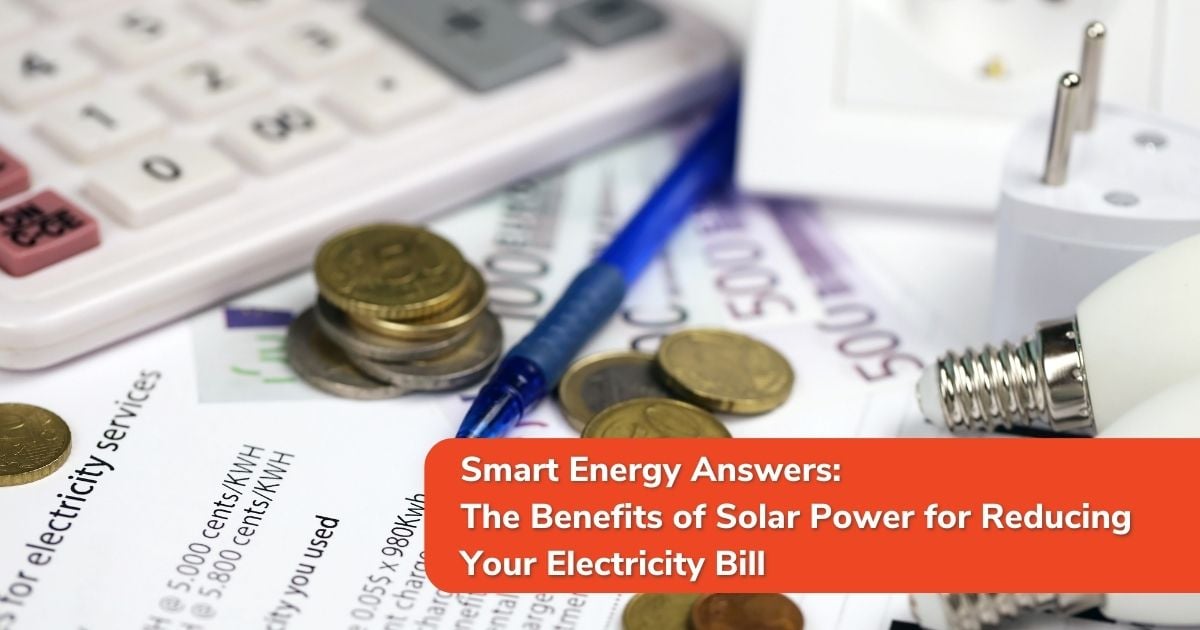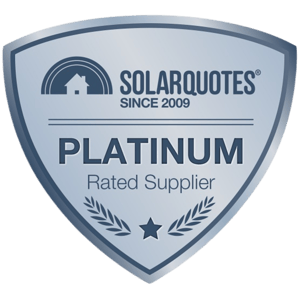The Benefits of Solar Power for Reducing Your Electricity Bill

Discover how solar power can help you save money on your electricity bill and reduce your carbon footprint.
Introduction: The Rising Costs of Electricity
Electricity costs have been steadily increasing over the years, putting a strain on household budgets. As the demand for electricity continues to rise, so does its price. This upward trend in electricity costs has led many homeowners to explore alternative energy sources that can help reduce their dependence on the grid and save money in the long run.
One such alternative is solar power. Solar energy is a renewable and abundant source of power that harnesses the sun's rays to generate electricity. By installing solar panels on your roof, you can generate your own clean and sustainable energy, reducing your reliance on traditional fossil fuel-based power.
In this blog post, we will explore the benefits of solar power and how it can help you lower your electricity bill while also contributing to a greener and more sustainable future.
Understanding Solar Power Basics
Before we delve into the benefits of solar power, it's important to understand the basics of how solar energy works. Solar panels are made up of photovoltaic cells that convert sunlight into electricity through the photovoltaic effect. When sunlight hits these cells, it excites the electrons, creating an electric current that can be used to power your home.
Solar power systems also include inverters, which convert the direct current (DC) generated by the solar panels into alternating current (AC) that can be used to power your appliances and electronics. Excess electricity generated by your solar panels can be stored in batteries or fed back into the grid through a process called net metering.
Lowering Energy Costs with Solar Power
One of the biggest advantages of solar power is its ability to lower your energy costs. By generating your own electricity, you can significantly reduce or even eliminate your monthly electricity bill. The amount of money you can save depends on several factors, including the size of your solar system, your energy consumption, and the amount of sunlight your location receives.
In addition to saving money on your electricity bill, solar power can also protect you from future electricity price hikes. As electricity costs continue to rise, your solar power system will continue to produce free energy from the sun, shielding you from the impact of increasing rates.
Furthermore, some states and territories offer feed-in tariffs, which allow you to earn credits for the excess electricity you feed back into the grid. These credits can further offset your electricity costs, making solar power an even more financially attractive option.
Exploring Net Metering and Energy Credits
Net metering is a billing arrangement that allows homeowners with solar power systems to receive credits for the excess electricity they generate and feed back into the grid. This means that when your solar panels produce more electricity than your home consumes, the excess energy is sent back to the grid, and you receive credits for it.
These credits can then be used to offset the electricity you consume from the grid when your solar panels are not generating enough power, such as during nighttime or cloudy days. Net metering effectively allows you to use the grid as a virtual battery, storing the excess energy you generate during the day for use when you need it.
In addition to net metering, some states and territories also offer feed-in tariffs, where you can earn a fixed amount for every kilowatt-hour of excess electricity you feed back into the grid. This can provide an additional financial incentive for installing solar panels and further reduce your electricity costs.
Long-Term Savings: Solar as an Investment
Investing in solar power is not only a smart financial decision but also a long-term investment. While the upfront cost of installing a solar power system may seem high, the savings you can achieve over its lifetime can far outweigh the initial investment.
Solar panels have an average lifespan of 25 to 30 years, during which they can generate a significant amount of electricity. By taking advantage of the sun's free energy, you can reduce your reliance on the grid and protect yourself from future electricity price hikes.
Moreover, installing solar panels can increase the value of your home. Studies have shown that homes with solar power systems tend to sell faster and at higher prices compared to homes without solar. This means that not only can you enjoy the benefits of solar power while you live in your home, but you can also potentially recoup your investment when you decide to sell.
Environmental Benefits of Solar Energy
In addition to the financial advantages, solar power also offers significant environmental benefits. Traditional electricity generation relies heavily on fossil fuels such as coal, oil, and natural gas, which release harmful greenhouse gases into the atmosphere when burned.
Solar energy, on the other hand, is clean and renewable. By harnessing the power of the sun, we can reduce our dependence on fossil fuels and mitigate the negative impacts of climate change. Switching to solar power can help reduce carbon emissions, air pollution, and water usage associated with traditional electricity generation.
By going solar, you can make a positive impact on the environment and contribute to a more sustainable future for generations to come.
Financial Incentives for Solar Installation
To encourage the adoption of solar power, various financial incentives are available to homeowners. These incentives can help offset the upfront cost of installing a solar power system and make it more affordable for households.
One of the most common financial incentives is the solar rebate or incentive provided by the government. These rebates can significantly reduce the cost of purchasing and installing solar panels. Additionally, some states and territories offer low-interest loans or grants for solar installations.
It's important to research and understand the financial incentives available in your area to maximize the benefits of going solar.
Overcoming Common Misconceptions About Solar
Despite the numerous benefits of solar power, there are still some common misconceptions that may deter homeowners from considering it as an option.
One common misconception is that solar power is only suitable for sunny regions. While it's true that solar panels generate more electricity in areas with abundant sunlight, they can still produce electricity even on cloudy or overcast days. Additionally, advancements in solar technology have improved the efficiency of solar panels, making them more effective in capturing sunlight.
Another misconception is that solar power is unaffordable. While the upfront cost of installing a solar power system may seem high, the long-term savings and financial incentives can make it a cost-effective solution. It's important to consider the return on investment and the potential energy savings over the lifetime of the system.
By addressing these misconceptions and providing accurate information, more homeowners can make an informed decision about adopting solar power.
Choosing the Right Solar Solution for Your Home
When considering solar power for your home, it's important to choose the right solution that suits your specific needs and circumstances.
Factors to consider include the size of your roof, the amount of sunlight your location receives, your energy consumption, and your budget. Consulting with a reputable solar installer can help you determine the optimal solar system size and configuration for your home.
Additionally, it's important to choose high-quality solar panels and inverters to ensure the long-term performance and reliability of your system. Look for reputable brands and check for certifications and warranties.
By carefully considering these factors and seeking professional advice, you can find the right solar solution that maximizes your energy savings and benefits.
Conclusion: Embracing Solar Power for Financial and Environmental Gain
In conclusion, solar power offers a range of benefits that can help you reduce your electricity bill, protect yourself from rising energy costs, and contribute to a greener and more sustainable future.
By generating your own clean and renewable energy, you can lower your reliance on the grid and save money in the long run. Solar power is a smart financial investment that can provide long-term savings and increase the value of your home.
Furthermore, by switching to solar energy, you can reduce your carbon footprint and help combat climate change. Solar power is a win-win solution that benefits both your wallet and the planet.
So why wait? Start exploring solar power options for your home today and embrace the benefits of this perfect match between solar power and home batteries.
%20(1).png?width=265&height=96&name=www.smartenergyanswers.com.auhs-fshubfsSmart%20Energy%20Answers%20Logo%20(HIRES)%20(1).png)

.png?width=514&height=121&name=Tesla%20Powerwall%203%20(new).png)







